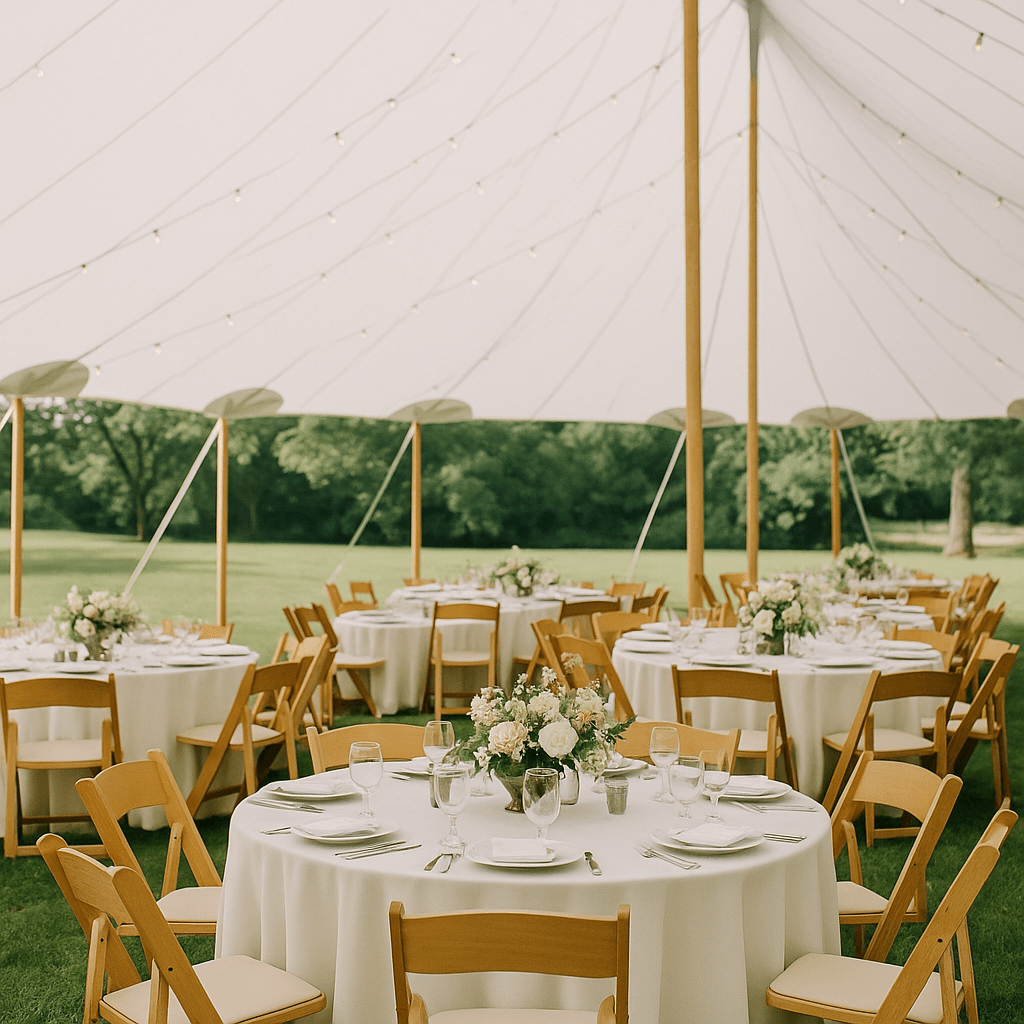Hosting an outdoor event can offer a fresh, scenic experience that indoor venues simply can’t match. Whether it’s a wedding, corporate gathering, fundraiser, or private party, open-air events provide a unique atmosphere that can leave a lasting impression. However, they also bring certain risks and challenges that require extra attention and smart planning.
This guide will help you plan an outdoor event that is not only beautiful but also runs smoothly, no matter the weather or logistics involved.
Choosing the Right Location
Start by carefully evaluating potential locations. The setting should reflect the style and purpose of your event, but it also needs to be practical.
Look for these features:
- Stable ground that can support tents, stages, and foot traffic
- Natural shade from trees or existing structures
- Easy access for setup and guest entry
- Space for restrooms, vendors, and parking
Don’t forget to check local regulations and any restrictions related to noise, fire safety, or alcohol.
Preparing for Unexpected Weather
Even in the best climates, weather can shift quickly. Having a solid backup plan is not optional—it’s essential.
Here’s how to prepare:
- Rain options: Reserve a tent or indoor space in case of rain. Tents should be waterproof and equipped with secure sidewalls.
- Hot weather: Provide shaded areas, hydration stations, and cooling fans.
- Cold temperatures: Use outdoor heaters and provide blankets if needed.
- Windy conditions: Secure all signage and decorations, and avoid lightweight structures.
Track weather forecasts days ahead and communicate changes clearly with your team and vendors.
Renting the Right Supplies
Outdoor events often require specific equipment to accommodate terrain and natural conditions. Partner with vendors who specialize in outdoor setups.
Consider renting:
- Sturdy tents or canopies
- Flooring or platforms to cover uneven ground
- Portable generators for power
- Restroom trailers with full amenities
Always plan for delivery, setup, and breakdown times when scheduling your event timeline.
Making the Event Accessible
An inclusive event ensures all guests feel welcome and comfortable.
Check that:
- Walkways are smooth and wheelchair-friendly
- Restroom facilities accommodate guests with disabilities
- Seating areas are easy to access for all age groups
- Golf carts or shuttles are available for large or remote venues
Post signs to guide guests and place staff near entrances to offer help if needed.
Creating a Layout Map
A layout map is essential for both setup and event day management. Share it with all vendors, staff, and security teams.
Include:
- Entry and exit points
- Seating arrangements
- Vendor zones
- Restroom locations
- Emergency and first-aid stations
- Trash and recycling bins
A clear layout helps reduce confusion and improves safety and flow during the event.
Getting the Right Permits and Coverage
Outdoor events are often subject to more regulations than indoor gatherings.
Be sure to:
- Apply for permits for noise, alcohol, food service, and large gatherings
- Follow health codes if food is served outdoors
- Purchase event insurance for property damage or last-minute cancellations
Start this process early, as approval timelines vary by city or county.
Keeping Food and Drinks Safe
Food safety is a top priority in outdoor conditions. Coordinate with professional caterers who know how to handle different weather scenarios.
Tips:
- Use coolers and insulated containers for perishables
- Set up food stations in shaded or covered areas
- Choose weather-friendly menus that avoid dairy-heavy or quick-spoiling items
- Offer plenty of cold water and refreshing beverages
Good catering ensures both taste and safety, enhancing the guest experience.
Managing Sound and Entertainment
Audio at outdoor events requires special consideration. Open spaces often absorb or distort sound.
To ensure quality:
- Use high-powered speakers placed strategically
- Test sound levels before the event
- Use backup power sources for AV equipment
- Provide covered areas for DJs or musicians
Also, check local regulations for noise limits or curfews to avoid issues with neighbors or authorities.
Prioritizing Guest Safety
Safety should be integrated into every part of your plan.
Make sure to:
- Hire security personnel if the event is large
- Provide lighting for walkways and exits
- Keep a stocked first-aid kit on site
- Post signage for emergency procedures and evacuation routes
If needed, have a designated team member in charge of safety and crowd control.
Planning Lighting for Atmosphere and Visibility
As the sun goes down, lighting becomes both functional and decorative.
Options include:
- String lights along walkways and tents
- Lanterns or battery-powered table lights
- Spotlights on trees or focal points
- Solar-powered or energy-efficient LEDs
Good lighting boosts ambiance, improves visibility, and enhances photography.
Managing Trash and Recycling
Cleanliness matters more outdoors, where trash can blow away or pile up fast.
Plan for:
- Clearly marked recycling and waste bins
- Staff or volunteers to handle cleanup during and after the event
- Environmentally friendly supplies like compostable cups or plates
Keeping the space clean also respects the environment and makes breakdown easier.
Training Your Staff and Volunteers
Before the event starts, gather everyone involved and walk them through the plan.
Cover:
- Roles and responsibilities
- Schedule and timeline
- Guest interaction protocol
- Emergency contacts and procedures
A unified team can adapt quickly and help solve problems before they escalate.
Communicating with Attendees
Make sure your guests know what to expect. Send emails or updates that include:
- Location and parking instructions
- Dress code suggestions for the weather
- Any last-minute changes due to weather or other factors
Event apps and social media can help keep communication clear and consistent.
Final Thoughts
Outdoor events require more planning, but they offer unmatched charm and flexibility. By thinking ahead, preparing for weather, and focusing on logistics, you can host an event that is not only successful but also memorable. The key is preparation — and a good attitude when nature throws surprises your way.
